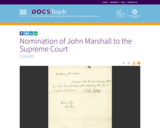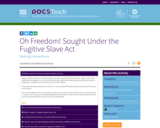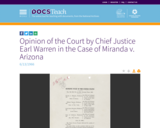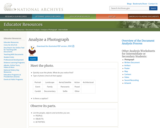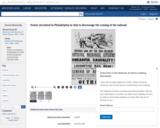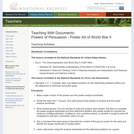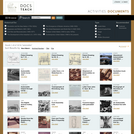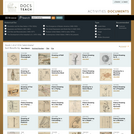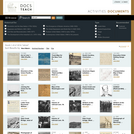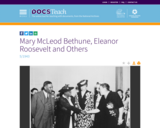
The original caption for this photograph reads: "Mrs. Eleanor Roosevelt and others at the opening of Midway Hall, one of two residence halls built by the Public Buildings Administration of FWA for Negro government girls."As a presidential advisor of African American Affairs during the Roosevelt administration, Mary McLeod Bethune formed the Federal Council of Negro Affairs, which would become known as the Black Cabinet. The Black Cabinet was instrumental in creating jobs for African Americans in Federal executive departments and New Deal agencies.Bethune’s influence within the Roosevelt administration also allowed her to direct funds created by the New Deal program to Black people. Programs such as the Works Progress Administration (WPA) and National Youth Administration (NYA) were successful in employing over 300,000 African Americans during the Great Depression.The original caption for this photograph uses the term "negro" to refer to Black people, which was commonly accepted in that era, but is outdated and inappropriate today.
- Subject:
- History
- U.S. History
- Material Type:
- Primary Source
- Provider:
- National Archives and Records Administration
- Provider Set:
- DocsTeach
- Author:
- National Archives
- Date Added:
- 07/08/2022


